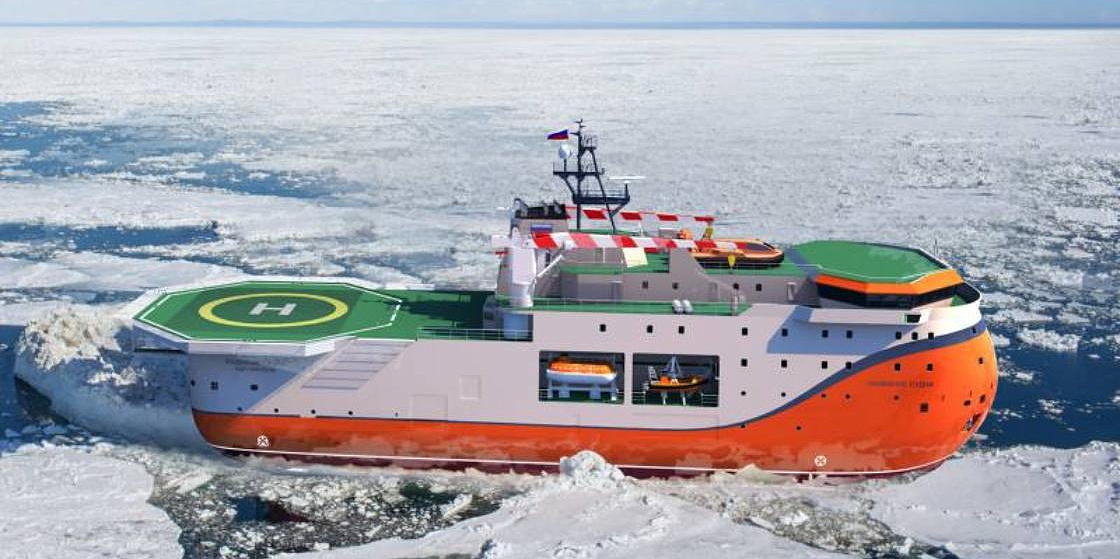
Arctic Ocean Research Platform to Set off for North Pole in 2022
North Pole, a Russian polar research floating platform being constructed in St. Petersburg, will be commissioned this summer, says Alexander Makarov, Arctic and Antarctic Research Institute Director.
The ice-resistant vessel, which is currently undergoing mooring trials, is about 90 per cent complete. According to plans announced by the Admiralty Shipyard, the platform will become fully operational by this July. This means that North Pole will be able to set out on her maiden voyage to high latitude areas of the Arctic Ocean as early as in autumn 2022. The platform will carry a team of scientists who will conduct a vast program of research into the Arctic climate, hydrography and biology.
The self-propelled platform is designed so as to be able to stay in the Arctic Ocean for at least two years. This is exactly why the project is so important for those who study high latitudes -- scientists stationed there will have long-term uninterrupted access to the Central Arctic, a still greatly understudied region. Rotating science teams including climatologists, biologists, hydrographers, chemists, geophysicists etc. will nonstop monitor the region’s environmental conditions and climate, stage experiments, and run tests. After its first two-year voyage, the vessel will return to a dock for maintenance and repairs to set off for another long-term mission in the High North.
The project will bring back the practice of setting up drifting research stations paused nine years ago due to degradation of ice in the Arctic.
Arctic Today is a column by PORA CEO Alexander Stotskiy analyzing major international, national and regional events and trends in the Arctic.
The ice-resistant vessel, which is currently undergoing mooring trials, is about 90 per cent complete. According to plans announced by the Admiralty Shipyard, the platform will become fully operational by this July. This means that North Pole will be able to set out on her maiden voyage to high latitude areas of the Arctic Ocean as early as in autumn 2022. The platform will carry a team of scientists who will conduct a vast program of research into the Arctic climate, hydrography and biology.
The self-propelled platform is designed so as to be able to stay in the Arctic Ocean for at least two years. This is exactly why the project is so important for those who study high latitudes -- scientists stationed there will have long-term uninterrupted access to the Central Arctic, a still greatly understudied region. Rotating science teams including climatologists, biologists, hydrographers, chemists, geophysicists etc. will nonstop monitor the region’s environmental conditions and climate, stage experiments, and run tests. After its first two-year voyage, the vessel will return to a dock for maintenance and repairs to set off for another long-term mission in the High North.
The project will bring back the practice of setting up drifting research stations paused nine years ago due to degradation of ice in the Arctic.
Arctic Today is a column by PORA CEO Alexander Stotskiy analyzing major international, national and regional events and trends in the Arctic.
10 January 2022




